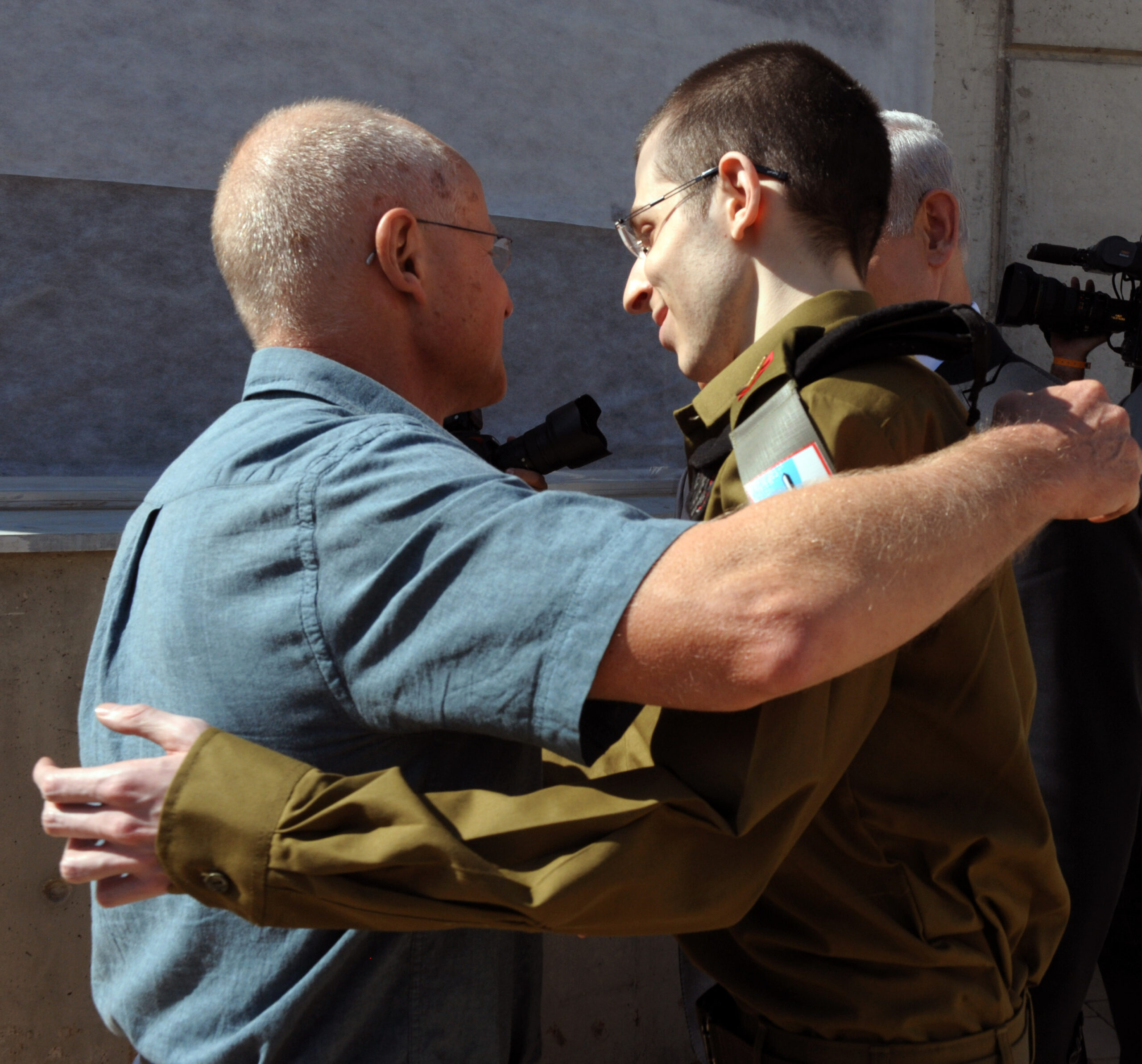Gilad Shalit Is Captured

June 25, 2006
Born in Nahariya, Israel, on Aug. 28, 1986, Gilad Shalit began his mandatory military service with the Israel Defense Forces (IDF) in July 2005. He served in the armored corps. On June 25, 2006, Shalit’s tank was patrolling the Gaza-Israel border when a group of Palestinian militants entered Israel via a tunnel. The tank was ambushed, and its engine was cut, rendering the interior suffocating. Two of the four soldiers inside the tank, Staff Sgt. Pavel Slutsker and Lt. Chanan Barak, emerged and were immediately shot dead. After hand grenades were thrown into the tank, Shalit emerged and was captured. He was smuggled into Gaza through a tunnel. The fourth soldier, who was unconscious and wounded, remained inside the tank until Israeli troops found him.
Almost immediately after his abduction, Shalit’s captors released a statement offering information about his whereabouts in exchange for the release of all female and juvenile Palestinian prisoners being held in Israel. So began a long series of prisoner exchange demands by Hamas militants and officials. The Israeli government steadfastly refused to negotiate. Numerous world leaders and dignitaries attempted diplomatic intervention to no avail.
In Israel, Shalit’s parents launched an emotional campaign for his release, with his father, Noam Shalit, communicating with Hamas and the Syrian president, writing letters to his son in Palestinian newspapers, and even offering himself as a replacement hostage. Noam Shalit had experienced this particular tragedy before: Three decades earlier his twin brother went missing in the 1973 Yom Kippur War. His brother’s body was later found among the dead.
In 2009, the family set up a protest tent in front of the prime minister’s house. It was visited by throngs of people, who created media campaigns in Israel and abroad, seeking Shalit’s release. Hamas’ refusal to permit the International Red Cross to visit Shalit caused widespread indignation.
After Shalit had spent more than five years in captivity, Israeli Prime Minister Benjamin Netanyahu was willing to negotiate. Shalit returned to Israel on Oct. 18, 2011, in exchange for 1,027 Palestinian prisoners. His return was met with both euphoria for his homecoming and outrage at the release of Palestinian terrorists, many of whom were responsible for murdering Israelis. Among those released was Yahya Sinwar, the Hamas military leader who organized the Oct. 7, 2023, Hamas terrorist attack on Israel.